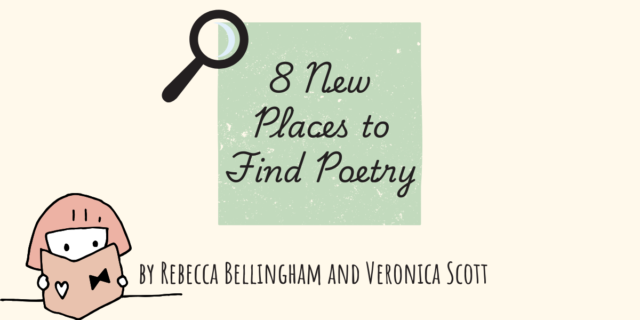
How To Host a Poetry Slam at Your School by Ralph Fletcher
I was recently invited to appear at a Poetry Slam at PS 117, a public elementary school in Queens, New York. Full disclosure: I’ve never been totally comfortable with the term “Poetry Slam.” It has always struck me as an oxymoron; the two don’t go together! Poetry should be gentle, thoughtful, contemplative. “Slam” is a loud, brash, in-your-face kind of word.
But maybe that perspective was too narrow. Unlike most other forms of writing, poetry is meant to be read out loud. A Poetry Slam taps into the performative side of this genre.
The Poetry Slam at PS 117 took place on Friday May 13, 2022 and I must say it was a powerful experience for everybody involved. While I was there it occurred to me that other schools might want to conduct Poetry Slams. I put together this blog post to show how you might do so.
Michelle Endelson, a third grade teacher, invited me to appear. The teachers decided that the Poetry Slam would include the 3rd, 4th, and 5th graders. First, the teachers spent a few weeks with the students in their classrooms, reading and writing poetry. Some of the teachers used my book Poetry Matters: Writing a Poem from the Inside Out.
It’s been my experience that many students are better at WRITING their poems than DELIVERING them. I was concerned that the kids would speak too softly and haltingly when the kids got up to present their poems. A few weeks before the Poetry Slam, I sent Michelle a handout on “Reading a Poem Out Loud,” with guidelines for students.
Ambience matters in a poetry slam. When I stepped into the auditorium I was impressed at how the gym was decorated. The subdued lighting and soft jazz music playing in the background created a mellow, coffee house atmosphere that communicated to the students: This is a special day.
At 8:15 am hundreds of excited kids filed into the auditorium and took their seats. Michelle went to the mic, greeted everyone, and introduced me.
The students’ poems that fell into five categories:
- Whimsical poems
- Poems that inspire
- Poems with strong imagery
- Poems of the soul
- Poems with powerful messages
As the celebrity guest, it was my role to introduce each section. I did so by saying a few words, and reading a couple of my poems.
Then the students got up, one by one, to recite their poems. A Powerpoint made it easy for the audience to follow the poem being presented. Two 5th grade girls did a terrific job hosting the Poetry Slam. One girl introduced each student: “Our next amazing poet is…” Then, after that student finished presenting the poem, the other girl responded briefly: “What a great poem! I never thought of Venus being a lonely planet. Let’s give Shakira fours snaps!”
The Poetry Slam was a rousing success. I was only present for the Poetry Slam itself, so all the important work took place before the day of the event. I asked Michelle to break down all the steps she took leading up to the Poetry Slam. This is what she told me:
My Principal, Mr. Erik Van Gunten, organized several committees designed to enhance instruction while highlighting poetry and infusing technology. He asked for volunteers to spearhead the school’s first Poetry Slam. I immediately volunteered along with my colleague Kerry Kerpen, a second-grade teacher. I knew at the inception that I wanted Ralph Fletcher to be our guest mentor and honored host at the poetry slam.
|
“Some of our students are faced with language and learning difficulties,” Michelle Endelson told me. “Students and staff were amazed at how the Poetry Slam served as a platform that allowed children to eloquently present their poetic creations. In addition, they got the benefit of pride and self-esteem as they were cheered by their peers.”
I think it’s essential to find somebody willing to be point person for an event like this—Michelle deserves a lot of credit for making this happen.
Participating in this Poetry Slam was a powerful experience that led me to revise my thinking. I usually encourage smaller, more intimate share sessions that take place within a classroom. But my experience in Queens reminded that there is definitely a place for big, splashy event that celebrates many writers at one time. The Poetry Slam at PS 117 made a lasting impression on those students, something they won’t soon forget.
Reading a Poem Out Loud
Think of three stages:
Stage One: You hardly know the poem. Sure, you wrote it, but you’re not yet comfortable reading it out loud in a smooth, fluent way. It’s like meeting a person for the first time. You’re just learning the poem’s “personality.”
Stage Two: You’re no longer doing a “cold reading” of the poem. You’re beginning to learn it, starting to get comfortable with the different parts and knowing what is coming next. Now you can start to recite the poem with expression, using your unique voice.
Stage Three: You know the poem by heart. You know it so well the poem has become part of you. You look at listeners while you recite it with confidence, making your voice shift (softer, lower, slower, faster, louder), to match the meaning of the poem. Go ahead and belt it out!
Remember: It’s perfectly okay to be at Stage One or Stage Three, but you’re working toward Stage Three. Keep in mind this quote from the great Bob Dylan: “I’ll know my song well before I start singing.”
Tips on Reading a Poem Out Loud: Think of your poem as a play, and add stage directions. Mark up your poem, adding reminders that tell you how to read it. You might bracket particular parts, or underline certain words, adding directions such as:
READ THIS PART S – L – O – W – L – Y or
LOUD!!! or
ANGRY!!
As you mark up your poem, and practice reading it out loud, you may decide to revise it, maybe cutting a line, or changing certain words. Reading out loud is a great way to hear where the rhythm is off.

Ralph Fletcher has been a mentor to teachers and young writers everywhere. He has helped hundreds of thousands of teachers understand the importance of letting go and trusting their writers. Ralph's professional books are part of this tradition.
His newest book, Focus Lessons, helps teachers use the natural links between writing and photography to enhance their instruction. Another recent title, Joy Write, explores the value of giving students time and autonomy for the playful, low-stakes writing that leads to surprising, high-level growth.
Ralph frequently works with young writers in schools, and speaks at education conferences in the U.S. and abroad, helping teachers find wiser ways of teaching writing. Ralph is the beloved author of many bestselling teacher professional books and resources including:
- Writing Workshop: The Essential Guide
- What a Writer Needs, Second Edition
- Mentor Author, Mentor Texts
- Craft Lessons
- Breathing In, Breathing Out
- Teaching the Qualities of Writing
- Lessons for the Writer's Notebook
Students know Ralph as the award-winning author of more than 20 books for children and young adults, including Fig Pudding, Twilight Comes Twice, The Writer’s Notebook, Marshfield Dreams: When I Was a Kid, and most recently Marshfield Memories: More Stories About Growing Up.


